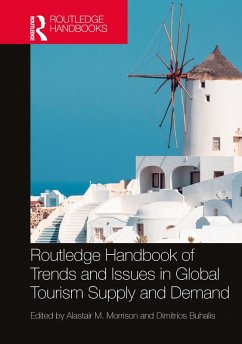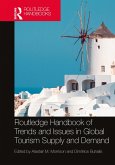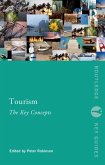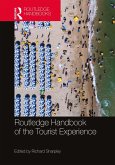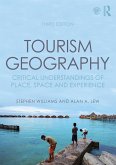Routledge Handbook of Trends and Issues in Global Tourism Supply and Demand (eBook, PDF)
Redaktion: Morrison, Alastair M.; Buhalis, Dimitrios
46,95 €
46,95 €
inkl. MwSt.
Sofort per Download lieferbar

23 °P sammeln
46,95 €
Als Download kaufen

46,95 €
inkl. MwSt.
Sofort per Download lieferbar

23 °P sammeln
Jetzt verschenken
Alle Infos zum eBook verschenken
46,95 €
inkl. MwSt.
Sofort per Download lieferbar
Alle Infos zum eBook verschenken

23 °P sammeln
Routledge Handbook of Trends and Issues in Global Tourism Supply and Demand (eBook, PDF)
Redaktion: Morrison, Alastair M.; Buhalis, Dimitrios
- Format: PDF
- Merkliste
- Auf die Merkliste
- Bewerten Bewerten
- Teilen
- Produkt teilen
- Produkterinnerung
- Produkterinnerung

Bitte loggen Sie sich zunächst in Ihr Kundenkonto ein oder registrieren Sie sich bei
bücher.de, um das eBook-Abo tolino select nutzen zu können.
Hier können Sie sich einloggen
Hier können Sie sich einloggen
Sie sind bereits eingeloggt. Klicken Sie auf 2. tolino select Abo, um fortzufahren.

Bitte loggen Sie sich zunächst in Ihr Kundenkonto ein oder registrieren Sie sich bei bücher.de, um das eBook-Abo tolino select nutzen zu können.
This Handbook provides a comprehensive overview of trends and issues in the global supply and demand on tourism.
- Geräte: PC
- mit Kopierschutz
- eBook Hilfe
Andere Kunden interessierten sich auch für
![Routledge Handbook of Trends and Issues in Global Tourism Supply and Demand (eBook, ePUB) Routledge Handbook of Trends and Issues in Global Tourism Supply and Demand (eBook, ePUB)]() Routledge Handbook of Trends and Issues in Global Tourism Supply and Demand (eBook, ePUB)46,95 €
Routledge Handbook of Trends and Issues in Global Tourism Supply and Demand (eBook, ePUB)46,95 €![Tourism: The Key Concepts (eBook, PDF) Tourism: The Key Concepts (eBook, PDF)]() Tourism: The Key Concepts (eBook, PDF)27,95 €
Tourism: The Key Concepts (eBook, PDF)27,95 €![Tourism Management (eBook, PDF) Tourism Management (eBook, PDF)]() Stephen J. PageTourism Management (eBook, PDF)54,95 €
Stephen J. PageTourism Management (eBook, PDF)54,95 €![Routledge Handbook of the Tourist Experience (eBook, PDF) Routledge Handbook of the Tourist Experience (eBook, PDF)]() Routledge Handbook of the Tourist Experience (eBook, PDF)46,95 €
Routledge Handbook of the Tourist Experience (eBook, PDF)46,95 €![The Routledge Handbook of Nature Based Tourism Development (eBook, PDF) The Routledge Handbook of Nature Based Tourism Development (eBook, PDF)]() The Routledge Handbook of Nature Based Tourism Development (eBook, PDF)46,95 €
The Routledge Handbook of Nature Based Tourism Development (eBook, PDF)46,95 €![Tourism Geography (eBook, PDF) Tourism Geography (eBook, PDF)]() Stephen WilliamsTourism Geography (eBook, PDF)72,95 €
Stephen WilliamsTourism Geography (eBook, PDF)72,95 €![International Case Studies on Tourism Destination Management and COVID-19 (eBook, PDF) International Case Studies on Tourism Destination Management and COVID-19 (eBook, PDF)]() Simon HudsonInternational Case Studies on Tourism Destination Management and COVID-19 (eBook, PDF)39,95 €
Simon HudsonInternational Case Studies on Tourism Destination Management and COVID-19 (eBook, PDF)39,95 €-
-
-
This Handbook provides a comprehensive overview of trends and issues in the global supply and demand on tourism.
Dieser Download kann aus rechtlichen Gründen nur mit Rechnungsadresse in A, B, BG, CY, CZ, D, DK, EW, E, FIN, F, GR, HR, H, IRL, I, LT, L, LR, M, NL, PL, P, R, S, SLO, SK ausgeliefert werden.
Produktdetails
- Produktdetails
- Verlag: Taylor & Francis eBooks
- Seitenzahl: 550
- Erscheinungstermin: 25. September 2023
- Englisch
- ISBN-13: 9781000933161
- Artikelnr.: 68481412
- Verlag: Taylor & Francis eBooks
- Seitenzahl: 550
- Erscheinungstermin: 25. September 2023
- Englisch
- ISBN-13: 9781000933161
- Artikelnr.: 68481412
- Herstellerkennzeichnung Die Herstellerinformationen sind derzeit nicht verfügbar.
Alastair M. Morrison is a Research Professor at the University of Greenwich in London, UK, and formerly an Associate Dean and Distinguished Professor Emeritus at Purdue University, USA, specialising in the area of tourism and hospitality marketing in the School of Hospitality and Tourism Management. Professor Morrison is ranked in the top 2% of scientists in the world based on the science-wide author database developed by Elsevier and Stanford University since 2019. He has published several books and around 350 academic articles and conference proceedings, as well as over 50 research monographs related to marketing and tourism. He is the Co-Editor-in-Chief of the International Journal of Tourism Cities and a Fellow of the International Academy for the Study of Tourism. Professor Morrison has served as the President of the International Tourism Studies Association (ITSA), Chairman of the Travel & Tourism Research Association (TTRA) - Canada Chapter, Board member of the CenStates TTRA Chapter, Vice President of the International Society of Travel and Tourism Educators (ISTTE), and Chairman of Association of Travel Marketing Executives (ATME). Dimitrios Buhalis is Director of the eTourism Lab and Deputy Director of the International Centre for Tourism and Hospitality Research at Bournemouth University Business School, UK. He is a Strategic Management and Marketing expert with specialisation in Information Communication Technology applications in the Tourism Travel, Hospitality and Leisure industries. He is the Editor in Chief of Tourism Review and the Editor in Chief of the Encyclopedia of Tourism Management and Marketing. Professor Buhalis has written and co-edited more than 25 books and 300 scientific articles and is recognised as a Highly Cited Researcher by Clarivate(TM) with more than 61000 citations and h-index 105 on Google Scholar. He is ranked in the top 2% of scientists in the world based on the science-wide author database developed by Elsevier and Stanford University since 2019. Dimitrios is a past President of the International Federation for Information Technologies in Travel and Tourism (IFITT) and a past Vice President of the International Academy for the Study of Tourism.
Part I: Supply-side trends
- Transportation
- High-speed rail growth
- New aircraft and airports
- Cruise lines: Market growth and diversification
- Cruises: Environmental impacts and policies
- A scenario planning approach to safety in visitor attractions
- Wine tourism: Current trends and future prospects
- Culinary tourism: Dualistic erosion and enhancement of food cultures
- Homestays concept in Indian tourism and hospitality industry
- Cultural heritage tourism and ethical trends
- Challenges in developing cultural tourism: Insights from Canada
- Edutainment experiences in dark tourism: Re-enacting dark heritage
- Modelling heritage justice for under-represented communities
- Creative tourism trends
- Intermediation, disintermediation and re-intermediation: Tourism distribution in the electronic age
- Technology trends and trip planning
- Digital-free tourism: The state-of-art and future research directions
- Metaverse as a new travel marketing platform
- Challenges and opportunities for the incorporation of robots in hotels
- Urbanisation: Trends and issues in world tourism cities
- Overtourism: Trends, issues, impacts and implications
- Issues and policies that have an impact on future trends in global tourism
- Tourism policies for the next normal: Trends and issues from global case studies
- Tourists' behaviour in a post-pandemic context: The consumption variables -- A meta-analysis
- Professionalisation destination management trends and issues
- Terrorism threat and its influence on leisure and travel behaviours of Millennials
- Multi-crisis destinations (MCDs) - Towards a future research agenda
- Understanding Gen Z as a future workforce in the hospitality and tourism industry
- Forced displacement: The 'refugee crisis' and its impact on global tourism
- Leading social change through prison fine dining as a new form of global tourism
- Sharing economy legislation: Regulating peer-to-peer tourism platforms such as Airbnb and Uber
- Re-imagining tourism in a world of declining nature
- Bleisure trends: Combining business and leisure travel
- Glamping: Camping in its "green" and luxurious version
- VFR travel: opportunities, trends and issues
- Transformational tourism: A visionary approach to sustainable tourism?
- Sport tourism in times of VUCA world
- German holiday travel demand trends
- New trends in wellness tourism: Post-COVID restoration
- Accelerated trends in tourism marketing and tourist behaviour
- Re-enacting dark histories
1.2 Attractions, culture, and heritage tourism
1.3 Technology
1.4 Policies and issues
1.5 Destination management
Part II: External factor trends
Part III: Market-led trends
Part I: Supply-side trends
- Transportation
- High-speed rail growth
- New aircraft and airports
- Cruise lines: Market growth and diversification
- Cruises: Environmental impacts and policies
- A scenario planning approach to safety in visitor attractions
- Wine tourism: Current trends and future prospects
- Culinary tourism: Dualistic erosion and enhancement of food cultures
- Homestays concept in Indian tourism and hospitality industry
- Cultural heritage tourism and ethical trends
- Challenges in developing cultural tourism: Insights from Canada
- Edutainment experiences in dark tourism: Re-enacting dark heritage
- Modelling heritage justice for under-represented communities
- Creative tourism trends
- Intermediation, disintermediation and re-intermediation: Tourism distribution in the electronic age
- Technology trends and trip planning
- Digital-free tourism: The state-of-art and future research directions
- Metaverse as a new travel marketing platform
- Challenges and opportunities for the incorporation of robots in hotels
- Urbanisation: Trends and issues in world tourism cities
- Overtourism: Trends, issues, impacts and implications
- Issues and policies that have an impact on future trends in global tourism
- Tourism policies for the next normal: Trends and issues from global case studies
- Tourists' behaviour in a post-pandemic context: The consumption variables -- A meta-analysis
- Professionalisation destination management trends and issues
- Terrorism threat and its influence on leisure and travel behaviours of Millennials
- Multi-crisis destinations (MCDs) - Towards a future research agenda
- Understanding Gen Z as a future workforce in the hospitality and tourism industry
- Forced displacement: The 'refugee crisis' and its impact on global tourism
- Leading social change through prison fine dining as a new form of global tourism
- Sharing economy legislation: Regulating peer-to-peer tourism platforms such as Airbnb and Uber
- Re-imagining tourism in a world of declining nature
- Bleisure trends: Combining business and leisure travel
- Glamping: Camping in its "green" and luxurious version
- VFR travel: opportunities, trends and issues
- Transformational tourism: A visionary approach to sustainable tourism?
- Sport tourism in times of VUCA world
- German holiday travel demand trends
- New trends in wellness tourism: Post-COVID restoration
- Accelerated trends in tourism marketing and tourist behaviour
- Re-enacting dark histories
1.2 Attractions, culture, and heritage tourism
1.3 Technology
1.4 Policies and issues
1.5 Destination management
Part II: External factor trends
Part III: Market-led trends
